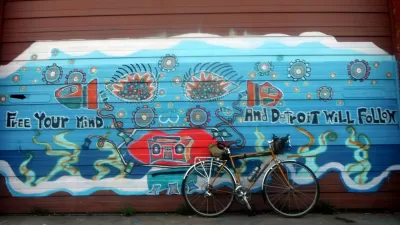According to analysts like Aaron Renn, the exodus of educated Millennials from what some perceive to be less-glamorous cities shouldn't signal impending doom. For one thing, brain drain might not be happening at all.

City leaders often worry about retaining the educated Millennial demographic. "Practically every city has complained at some point about the existential threat of brain drain. Yet, look at current data, and you might start to think cities today are fighting a phantom."
Commentators like the Manhattan Institute's Aaron Renn see a pervasive and unfounded paranoia in the brain drain phenomenon. "An oft-used metaphor regarding Midwest cities is that hemorrhaging young talent is like a leaky tub, with grads flowing to glitzier economies in New York, Silicon Valley and Boston."
In a recent paper, Renn calls the factual basis of that metaphor into question. "Between 2000 and 2013, the amount of adults with a bachelor's degree or better grew substantially — by at least double digits — in all 28 metros" classified as the nation's largest "shrinking cities." Their populations might be shrinking, but many postindustrial cities are actually becoming better educated.
The problem may lie with undue emphasis placed on collegiate retention rates. "When you're focused exclusively on retaining people with college degrees, you're focusing a lot on problems of the elite," says Renn. Retention rates also ignore arriving degree-holders who attended school elsewhere.
FULL STORY: The Trouble With Fretting Too Much About Brain Drain

Study: Maui’s Plan to Convert Vacation Rentals to Long-Term Housing Could Cause Nearly $1 Billion Economic Loss
The plan would reduce visitor accommodation by 25,% resulting in 1,900 jobs lost.

North Texas Transit Leaders Tout Benefits of TOD for Growing Region
At a summit focused on transit-oriented development, policymakers discussed how North Texas’ expanded light rail system can serve as a tool for economic growth.

Why Should We Subsidize Public Transportation?
Many public transit agencies face financial stress due to rising costs, declining fare revenue, and declining subsidies. Transit advocates must provide a strong business case for increasing public transit funding.

How Community Science Connects People, Parks, and Biodiversity
Community science engages people of all backgrounds in documenting local biodiversity, strengthening connections to nature, and contributing to global efforts like the City Nature Challenge to build a more inclusive and resilient future.

Alabama: Trump Terminates Settlements for Black Communities Harmed By Raw Sewage
Trump deemed the landmark civil rights agreement “illegal DEI and environmental justice policy.”

Dear Tesla Driver: “It’s not You, It’s Him.”
Amidst a booming bumper sticker industry, one writer offers solace to those asking, “Does this car make me look fascist?”
Urban Design for Planners 1: Software Tools
This six-course series explores essential urban design concepts using open source software and equips planners with the tools they need to participate fully in the urban design process.
Planning for Universal Design
Learn the tools for implementing Universal Design in planning regulations.
City of Santa Clarita
Ascent Environmental
Institute for Housing and Urban Development Studies (IHS)
City of Grandview
Harvard GSD Executive Education
Toledo-Lucas County Plan Commissions
Salt Lake City
NYU Wagner Graduate School of Public Service




























